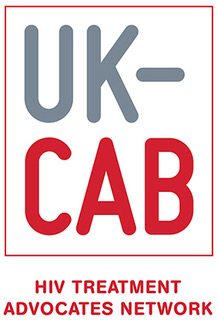4. Complex HIV care
If you are in the UK, and diagnosed relatively soon after you acquired HIV, then it is most likely that you will NOT need complex HIV care as described in this section. You are more likely to get everything you need for your HIV care as described in Standard 3 (HIV outpatient care and treatment). There may still some circumstances where more complex care will be needed. The three main areas of complex care need are described here in Standard 4. This, though, focuses on physical health. Emotional wellbeing and mental health are discussed in Standard 6 (Psychological Care).
4a. Inpatient care
Inpatient care is hospital care. Far fewer people diagnosed with, or living with, HIV now need to be in hospital for HIV.
The number of new HIV diagnoses in the UK has fallen in recent years. This is due to a combination of factors, including: people testing more frequently; earlier diagnosis; starting antiretroviral treatment (ART)ART: Anti-Retroviral Treatment. For most people, this means taking three or more Anti-RetroVirals (ARVs), though it may be fewer in some cases. ARV: Anti-RetroViral .This is the name given to the drugs used in Anti-Retroviral Treatment (ART). For many people, a single tablet can contain all ARVs needed for your treatment. But others may need to take more than one tablet. sooner after diagnosis than in the past; and pre-exposure prophylaxis (PrEP)pre-exposure prophylaxis: PrEP is ART that is used by HIV negative people to stop them getting HIV. To be protected by PrEP you need to take it before you have sex without a condom. MSM can take PrEP ‘on demand’ (which means you need to take tablets before and after sex according to a specific schedule). Anyone else using PrEP needs to take it every day. PrEP only stops you getting HIV, so you still need to use a condom to protect you from other STIs, or to prevent pregnancy . Even though the number is going down, some people are still being diagnosed late – that is, they have had HIV for a long time without knowing it. This can mean an increased risk of getting infections other than HIV or developing other complications. This is because your immune system is damaged by untreated HIV and a weak immune system can increase the risk of serious infections, such as tuberculosis (TB) This is a bacterial infection that is passed on by breathing in tiny droplets from the coughs or sneezes of a person who has TB. Some people living with HIV are increased risk of TB if their immune system is weak. and pneumoniapneumonia is swelling (inflammation) of the tissue in one or both lungs. It’s usually caused by a bacterial infection.. If you have been diagnosed late with HIV, it could be that you may need to spend time in hospital to deal with some of these things. Most people respond well to this kind of treatment and then go on to outpatient care for HIV, as described in Standard 3b (Outpatient care).
Thanks to safe and effective ART, many people living with HIV are living well into old age. This means that like anyone else, you may need to go into hospital for non-HIV reasons.
If you do need to go into hospital, for whatever reason, you should receive the best care and treatment. If the reason is HIV-related, then an HIV specialist would normally lead your care. They will use the BHIVA guidelinesthese are produced for use by healthcare professionals and others for the management of all aspects of HIV care in the UK. They are the starting point for individualised care. They are evidence-based, developed by independent committees with membership that includes knowledgeable professionals, and people living with HIV. All BHIVA guidelines are NICE accredited. Some are available in non-technical form. for the treatment of HIV as a starting point, but all care is individualisedindividualised care involves a whole-system approach, integrating services around the person by involving health, social care, public health and other issues. It is based on ‘what matters’ to the individual, and their individual strengths and needs. to your specific needs. If you need support from other clinical specialties when the problem is not HIV-related, you may be treated by doctors and nurses who have limited experience in providing care for people living with HIV. Even so, you should be treated with dignity and respect, regardless of race, gender, sexuality or any other factors, and your wishes about confidentiality should be respected.
Not all hospitals have HIV specialist inpatient units. If that is the case, your hospital will work with another hospital that does have specialist HIV inpatient expertise. In some cases, you may need to be transferred to another hospital. This should take place within 24 hours of the request being made.
When you leave hospital, there should be a plan in place to make sure you get the full support you need to recover well.
Key messages
Fewer people living with HIV today need inpatient care. You should get the best care and treatment available in hospital. Your care may be led, or supported, by an HIV specialist, but other specialist doctors and nurses may also be involved in your care. You should be given privacy, dignity and respect, regardless of race, gender, sexuality or any other factors. Your wishes with regard to confidentiality should be respected.
Not all hospitals have HIV specialist inpatient units. In some cases, you may be transferred to another hospital with these units. This should take place within 24 hours of the request for transfer.
When you leave hospital, you should be supported by an appropriate rehabilitation or discharge plan, if needed.
